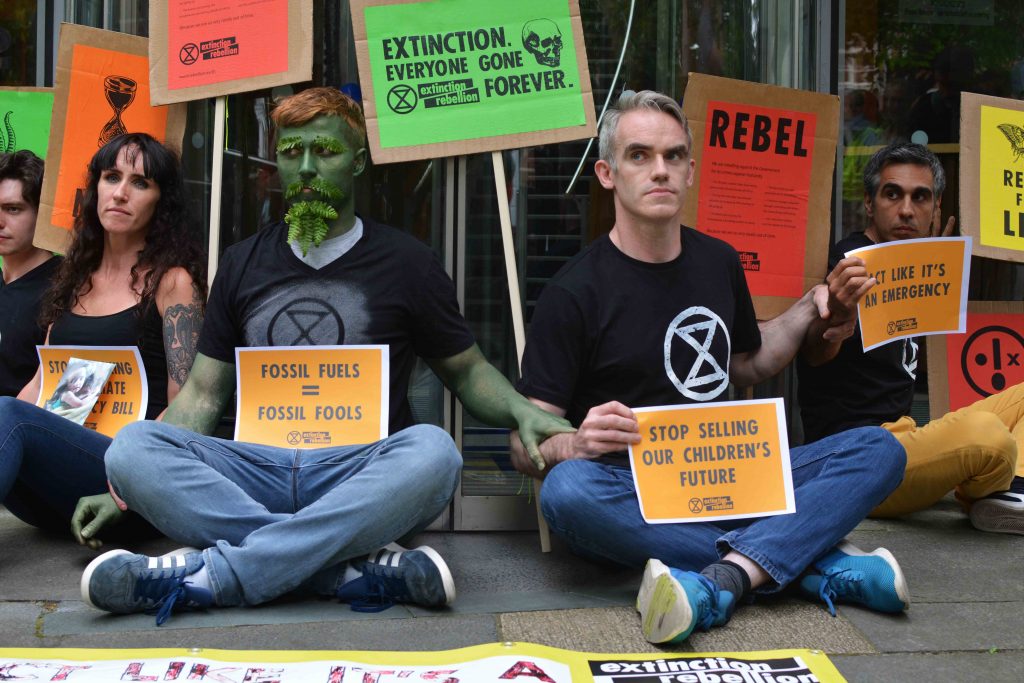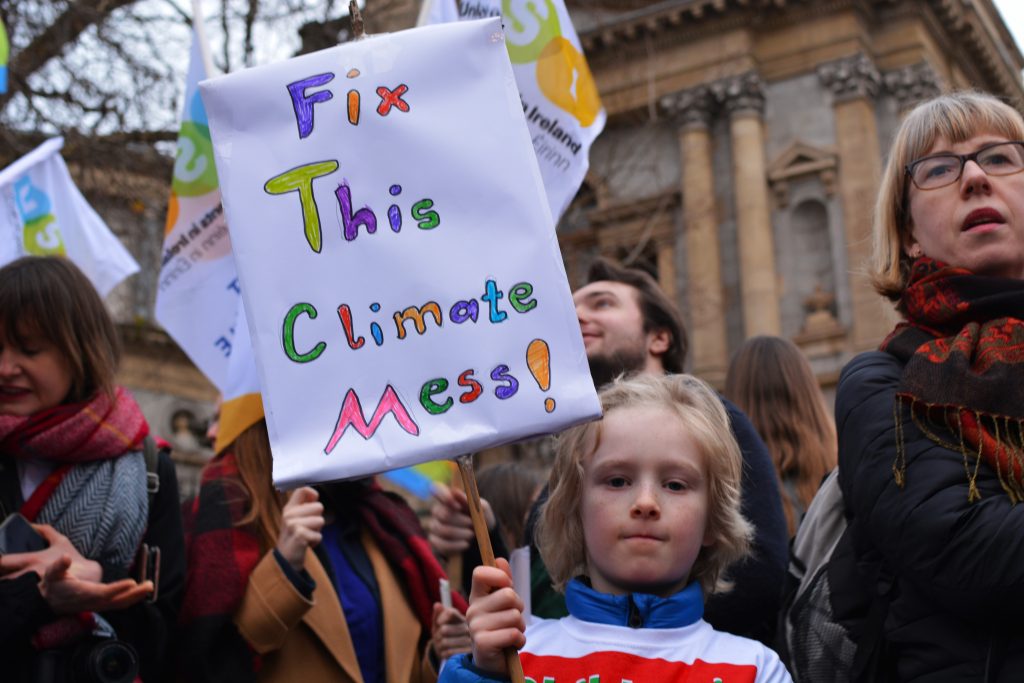‘Climate Emergency’ named word of the year for 2019

Oxford Dictionaries have named “climate emergency” as the word of the year for 2019.
The term has become 100 times more common compared to 2018, and its use increased sharply over the course of this year, according to the Oxford publication.
The term is defined as “a situation in which urgent action is required to reduce or halt climate change and avoid potentially irreversible environmental damage resulting from it”.
The word “emergency” had previously been used at a personal level, often used in reference to health, hospitals and families. “But with climate emergency, we see something new,” Oxford Dictionaries said. The term, they say, is “an extension of emergency to the global level, transcending these more typical uses”.

Growing shift in language
In 2019, climate emergency had overtaken all other types of emergency to become the most written about emergency by a huge margin.
As analysis from Oxford Dictionaries found that climate emergency has over three times the usage frequency of health, the second-ranking corresponding word to “emergency”.
The data is particularly significant, the publication found, as it indicates a “growing shift in people’s language choice in 2019” which represented a conscious choice to “reframe discussion of the ‘defining issue of our time’ with a new gravity and greater immediacy”.
The Guardian officially changed its terminology in relation to climate change in May of this year, finding that terms such as “climate emergency”, “climate crisis”, and “climate breakdown” were more accurate reflections of the crisis at hand.
When announcing the editorial decision, editor-in-chief Katharine Viner said that using the term climate emergency was a way to “ensure that we are being scientifically precise, while also communicating clearly with readers on this very important issue.”
The change in language is noted at the state level with many countries declaring national declarations over the course of 2019. Ireland declared a national climate and biodiversity emergency in May, one of the first countries to do so.

Climate-focused shortlist
Many of the shortlisted contenders for word of the year 2019 were climate related. “Climate action” saw a 266 per cent increase in usage, with a notable spike of use in September to coincide with the UN Climate Action Summit in New York and the global protests that were held in response.
“Climate crisis” saw a 26-fold increase in frequency, and both ecocide and extinction had an over 600 per cent increase in use. “Eco-anxiety” had the most dramatic recorded spike in word use, as according to Oxford Dictionaries analysis, the term had a 4,290 per cent increase in 2019.
A European poll revealed earlier this year that up to 95 per cent of the Irish population now saw climate change as a serious problem, with over a quarter identifying climate change as the most serious problem facing the world.
On an EU level, concern is continuing to grow as climate change has overtaken international terrorism as the second most serious problem identified by citizens after poverty, hunger, and lack of drinking water.
[x_author title=”About the Author”]







